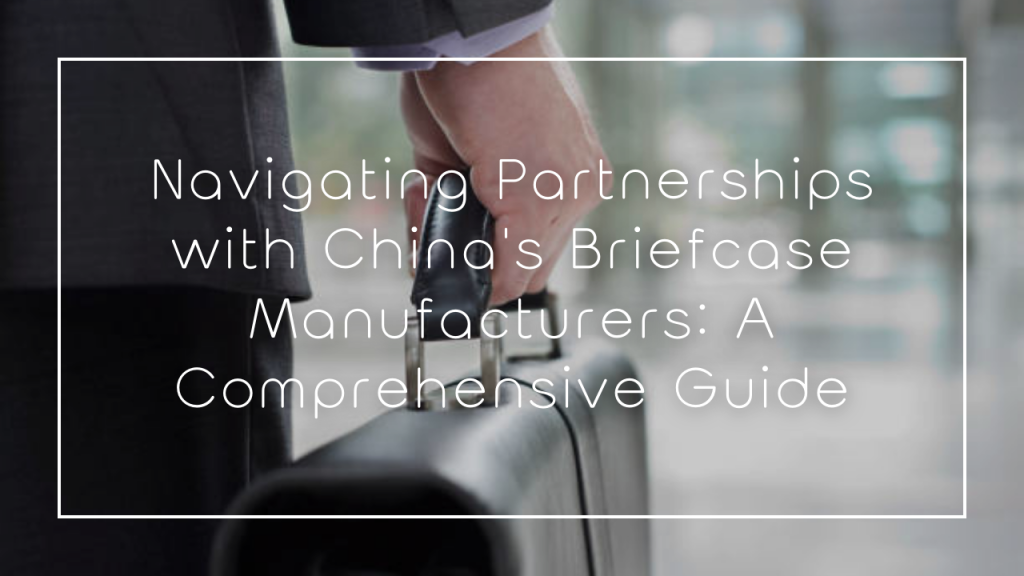
In the world of manufacturing, China continues to stand tall as a giant, known for its extensive production capabilities across various sectors. Among these, the crafting of high-quality, durable briefcases is an area where Chinese craftsmanship shines.
Whether you are an entrepreneur aspiring to launch your briefcase line, a business seeking to expand its inventory with bespoke designs, or a company aiming for cost-effective mass production, understanding how to navigate the intricacies of partnering with Chinese briefcase manufacturers is crucial.
This comprehensive guide serves as your roadmap, detailing strategic steps from identifying reliable partners to ensuring quality control, managing logistics, and safeguarding your intellectual property.
Finding a Manufacturer for Collaboration or Purchase
If you’re looking to manufacture briefcases, whether for your brand or for bulk purchasing, you’ll want to look into companies that specialize in luggage, cases, and leather goods. Platforms like Alibaba, Made-in-China.com, and Global Sources are good places to start. They list numerous manufacturers along with details about their products, enabling you to identify potential partners. Always check for verified suppliers, read reviews, and communicate clearly your specifications for materials, design, quality, and timelines.
Custom Design Manufacturing
If you have a specific design in mind for custom briefcases, you’ll need a manufacturer capable of bespoke production. Reach out to companies through the above-mentioned platforms, or search for manufacturers specializing in custom production of leather goods and briefcases. You’ll need to provide detailed design documents, and possibly samples of materials you wish to use. Be prepared for a back-and-forth process of prototype development and adjustments.
Private Label Manufacturing
For those interested in starting a briefcase line under their own brand, private label manufacturers are the go-to. These companies can produce items that you can brand as your own. Some may also offer design services to differentiate your items. Private label manufacturing can be cost-effective and allows more focus on branding and marketing.
Quality Assurance and Compliance
It’s crucial to ensure that the products meet your quality standards and comply with any regulations in your target market. Consider hiring third-party inspection services to check product quality before shipment. Discuss with your manufacturer about compliance with standards (like ISO certifications) and any specific legal requirements for leather goods in your country.
Logistics and Shipping
Understand the terms of shipping, whether it’s FOB (Free on Board), CIF (Cost, Insurance, and Freight), or another agreement. Consider working with a freight forwarder who can handle the logistics, especially if you’re new to importing goods.
Intellectual Property Protection
If your designs are unique, consider securing intellectual property protection before disclosing them to any manufacturer. China has specific laws for intellectual property, and utilizing them can help safeguard your designs.
Communication
Clear communication is critical. If there’s a language barrier, consider hiring a translator or a liaison who can ensure your specifications are understood clearly. Also, be culturally aware to build a strong, respectful business relationship.